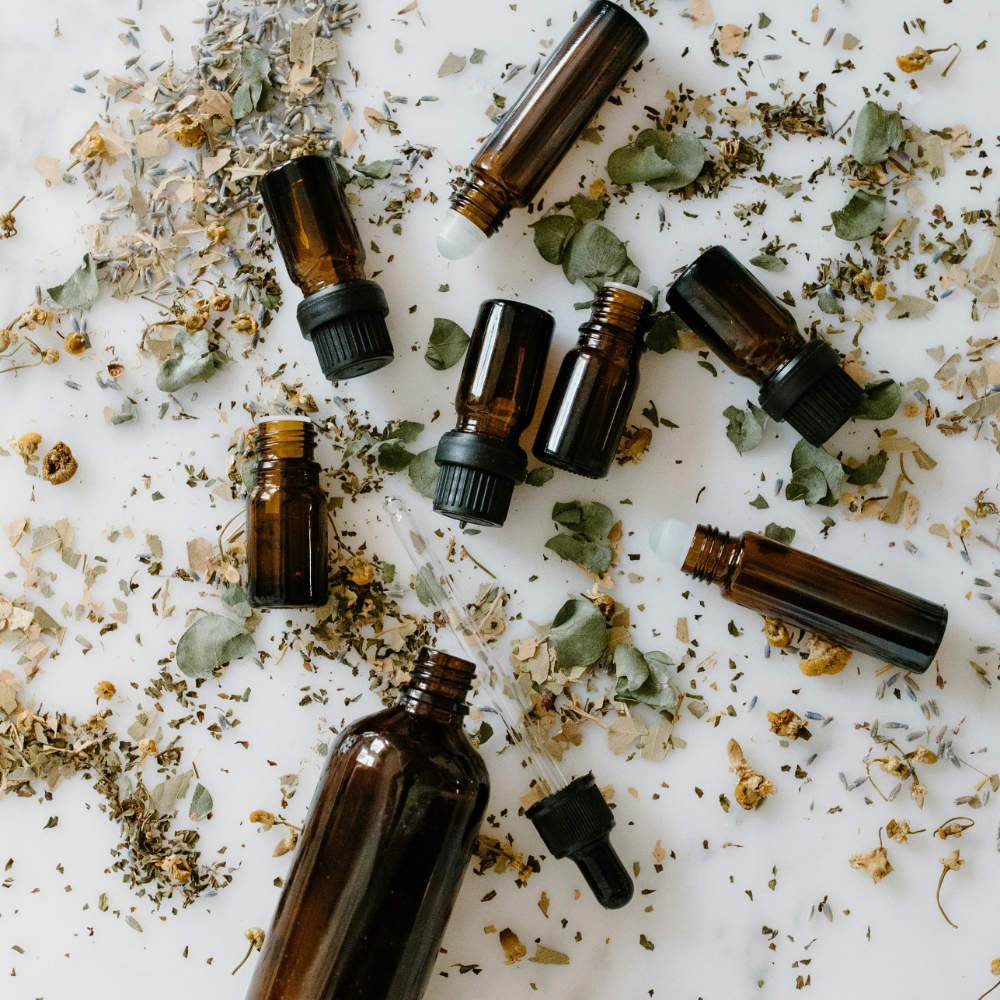Why Have Meds: When You Can Have Herbs
Modern medicine has its place, but for centuries, nature has been the original pharmacy. Herbs have been used by cultures worldwide to heal, nurture, and support well-being. So, why turn to synthetic solutions when you can tap into the power of plants? Let’s explore why herbs can be an incredible alternative to conventional medications and how they might fit into your health routine.
The Benefits of Choosing Herbs
✦ Natural and Gentle Herbs often work in harmony with your body, offering gentle solutions without the harsh side effects that some synthetic medications may bring. For instance, chamomile tea can soothe anxiety and aid sleep without the grogginess often associated with sleep aids.✦ Holistic Healing Herbs often provide multiple benefits. For example, turmeric is known not only for its anti-inflammatory properties but also for supporting digestion and boosting immunity. Unlike many medications that target specific symptoms, herbs often nurture your overall well-being.
✦ Affordable and Accessible Herbal remedies are often more affordable than prescription drugs and can be found at local markets, health stores, or even grown in your garden.
✦ Fewer Side Effects While no remedy is entirely risk-free, herbs generally have fewer and less severe side effects compared to many pharmaceuticals.
Common Herbs and Their Uses
Turmeric
✦ Use: Anti-inflammatory, supports joint health, and boosts immunity.
✦ How to Take It: Add to smoothies, teas, or meals.
Ginger
✦ Use: Relieves nausea, supports digestion, and reduces inflammation.
✦ How to Take It: Brew into tea, add to dishes, or chew raw.
Echinacea
✦ Use: Boosts the immune system and helps fight colds.
✦ How to Take It: Found in teas, tinctures, and capsules.
Peppermint
✦ Use: Eases digestive issues and relieves headaches.
✦ How to Take It: Drink as tea or apply peppermint oil diluted with a carrier oil to temples.
Ashwagandha
✦
✦ How to Take It: Often available as a powder or capsule.
When Herbs Might Be a Better Choice
✦ Chronic Issues: For ongoing concerns like stress, mild anxiety, or digestive discomfort, herbs can provide long-term support.✦ Preventative Care: Incorporating herbs into your diet can help build resilience and prevent health issues from arising in the first place.
✦ Mild Symptoms: For minor ailments like a headache or cold, herbal remedies can often do the trick without needing prescribed medication.
When to Use Caution
While herbs are natural, they’re not always harmless. Here are a few guidelines:
✦ Consult Your Doctor: Especially if you’re pregnant, nursing, or taking other medications.✦ Start Small: Introduce herbs gradually to see how your body reacts.
✦ Quality Matters: Always choose high-quality, organic herbs from reputable sources.
✦ Know Your Limits: For serious or life-threatening conditions, modern medicine is essential and should not be replaced with herbs.
Bringing Herbs Into Your Life
Adding herbs to your daily routine doesn’t have to be complicated. Here are some simple ways to start:
✦ Herbal Teas: Replace your afternoon coffee with a soothing cup of herbal tea.✦ Cooking: Incorporate fresh or dried herbs like basil, oregano, or cilantro into your meals.
✦ Supplements: Use capsules or tinctures for concentrated doses of herbs.
✦ Essential Oils: Use herbal oils for relaxation, aromatherapy, or topical relief (diluted).


